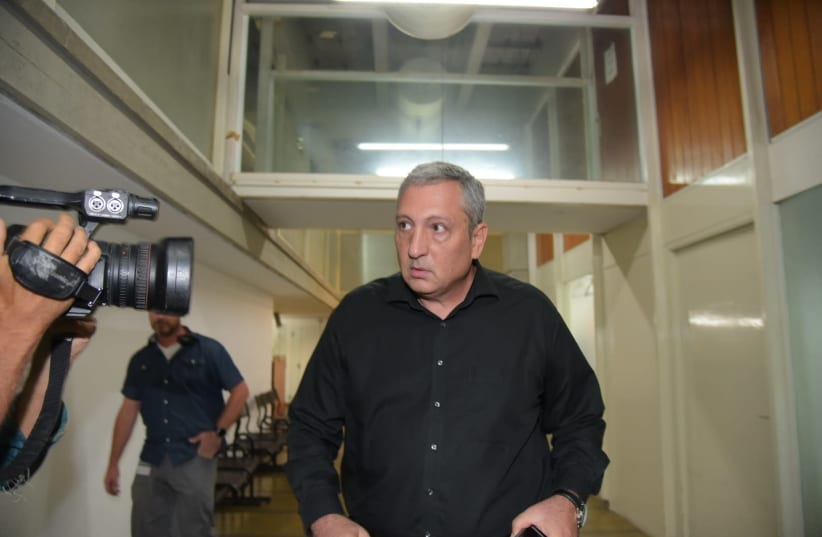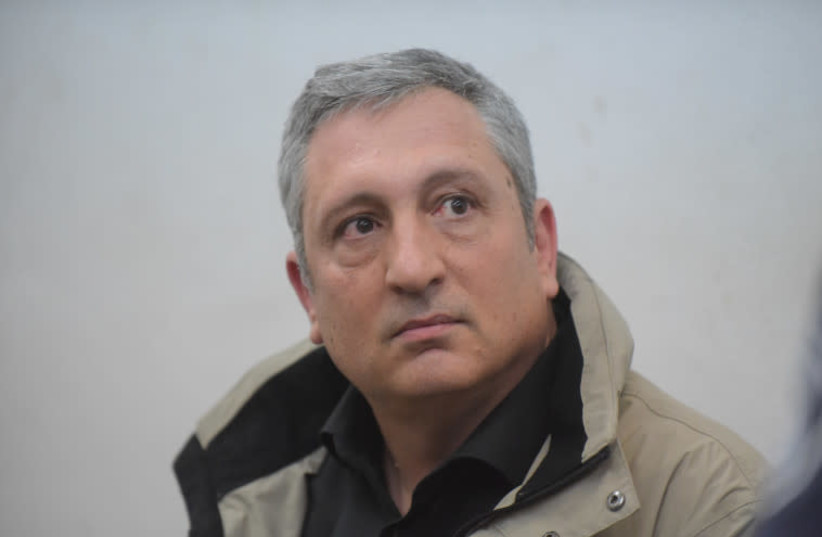Nir Hefetz, a former top aide to Benjamin Netanyahu, testified on Monday before the Jerusalem District Court about Case 2000 and about the moment when he decided to turn state’s witness against the former prime minister.
It was the fourth day of Hefetz’s testimony, which started with his confirming more instances in which Netanyahu allegedly ordered him to control aspects of Walla’s media coverage as part of the Case 4000 Bezeq-Walla Affair.
Multiple instances related to media coverage of the “Prepared Food Affair” in which Sara Netanyahu was convicted, but not given any jail time.
Eventually, the prosecution wrapped up testimony about that media bribery affair and moved on to giving Hefetz an opportunity to explain why he became the prosecution’s star witness after serving the Netanyahu family loyally for years.
Hefetz explained that there were several factors, including the “monstrous” physical conditions he endured while in detention for around two weeks.
However, he said there were ultimately three main reasons he turned on Netanyahu.
The first was shock that another top Netanyahu aide, Shlomo Filber, had turned against the former prime minister.
Filber’s turning state’s witness in February 2018 was the first time a witness could directly point the finger at Netanyahu’s involvement in Case 4000 and suggested that the former prime minister might not escape prosecution.
Second, Hefetz noted the police showed him that Bezeq-Walla owner and now defendant Shaul Elovitch had confessed to breaking his cellphone along with Hefetz as part of an attempt to cover up their actions in Case 4000.
Third, he said the longer he spent in prison, the longer he felt abandoned by Netanyahu and that his loyalty to lie for the prime minister had limits.
While lawyer Eli Zohar advised Hefetz not to rush into a state witness and immunity plea deal, another lawyer, Ilan Sofer, advised him to cut a deal before Elovitch did or before the police decided they did not need him to make their case against Netanyahu.
At this point, Hefetz had his lawyers convey messages back and forth between him and his family who he said were split about what he should do – with some opposing his cutting a deal to this day.
Hefetz broke down and started to cry and the court took a brief recess until he was able to compose himself.
He said that in the end he cut the deal to be free to tell the truth and to extricate himself from short-term detention and potential years of long-term prison time.
THOUGH HE acknowledged that pressure which the police used on him via a third-party woman with whom he allegedly had a romantic connection, and was not his wife (and whose identity is under gag order) was difficult, he said this was not the primary reason he flipped against Netanyahu.
Rather, he explained that as soon as the police brought the woman to confront him, he knew the story would leak to the media whether he signed an immunity deal or not.
The defense has claimed that the physical and emotional pressure used by police was illegal and caused Hefetz to manufacture claims against Netanyahu.
The above prosecution questioning appeared designed to disarm the defense’s expected counterattack when they get to cross-examine Hefetz, possibly already on Tuesday.
Next, Hefetz described his relationship with Yediot Aharonot owner Arnon Nuni Mozes and Netanyahu during the period when Hefetz was in senior Yediot editor positions and then a top aide to Netanyahu.
The prosecution, with lawyer Alon Gildin taking the lead, seemed to want to use Hefetz to show the dominant power of Mozes to influence Yediot’s coverage on any issue as part of their efforts to prove their claims in Case 2000, the Yediot Aharonot-Israel Hayom Affair.
They also seemed to want to show there was a pattern of conduct of Netanyahu trying to engage in media bribery with owners of media outlets, whether with Mozes of Yediot or Elovitch of Walla.
In Case 2000, Mozes is accused of media bribery and Netanyahu

